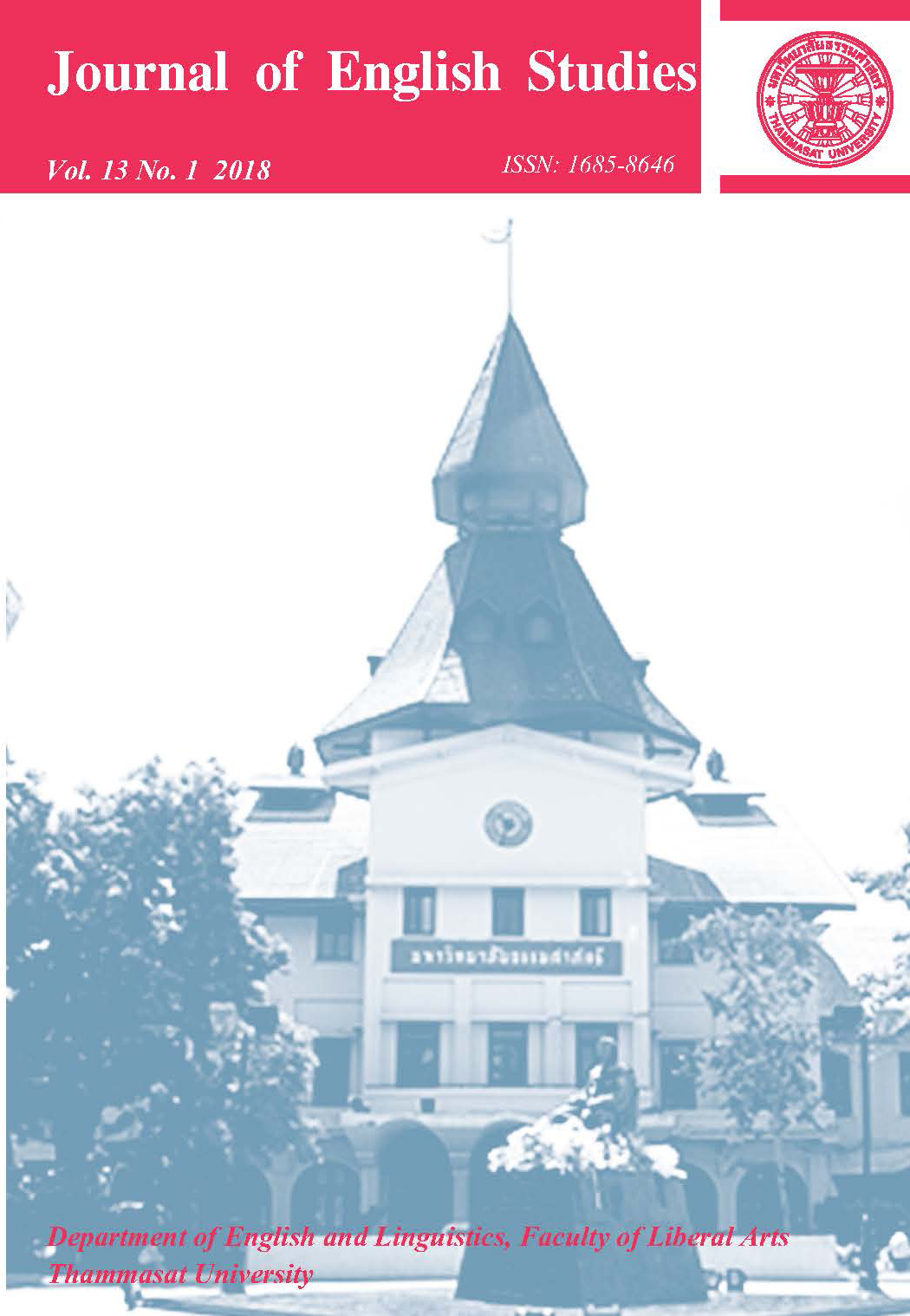Learning, Teaching, and Staying Current in Englishes Using Online Resources
Main Article Content
Abstract
Historical linguists have documented for centuries that languages naturally change through new generations, and sociolinguists have likewise demonstrated that languages vary among speakers, so it is no surprise that English both changes and varies, but as the language has become a global lingua franca, its change and variation have accelerated, causing many challenges for ELT about which English or Englishes to teach at different levels, about which conventions to follow, for example in academic writing or in English for Specific Purposes, and about how to evaluate when teaching materials are outdated. This paper will examine the digital resources, such as corpora and Google Trends, which teachers and students can use to investigate the language appropriate for their context, audience, and purpose. Examples will come from all levels, from vocabulary taught in primary schools to collocations used in scholarly writing.
Article Details
References
Barratt, L. (2012a). On commoner being more common. In É. Illés & T. Eitler (Eds.), Studies in
Applied Linguistics in honour of Edit H. Kontra (pp. 13-16). Budapest, Hungary: ELTE
BTK.
. (2012b). U.S. English: Mythology, reality, and pedagogy. Paper presented
at the International Association of World Englishes (IAWE) Annual Meeting,
Guangzhou.
. (2015). How research on language can help all researchers. The 1st International Conference on Research in Education, Arts, Management, and Science (I-CREAMS) . Thailand.
. (2016). Convergence, divergence, and development: How changing Englishes affect what and how we teach. 2016 Joint International Conference of MBALL, NAELL, AELLK, and MESK (pp. 3-12). South Korea.
Bednarek, M. (2010). With a little help from the corpus: Corpus Linguistics and EFL teaching. In A. Mahboob (Ed.), The NNEST lens non native English speakers in TESOL (pp. 325-344). Newcastle upon Tyne: Cambridge Scholars.
Bennett, G. (2010). Using corpora in the language classroom: Corpus linguistics for teachers.
Ann Arbor: University of Michigan Press.
Brown, P. (2016). English grammar secrets. Retrieved from https://www.englishgrammar
secrets.com/pastperfect/menu.php
Davies, Mark Corpus of Contemporary American English (COCA). Retrieved from https://corpus.byu.edu/coca/
Davies, Mark Corpus of Historical American English (COHA). Retrieved from https://corpus.byu.edu/coha/
Dewey, J. (1916). Democracy and education. New York, NY: MacMillan.
Katre, S. M. (1987). Astadhyayi of Panini. Austin: University of Texas Press.
Kumar, A. (2013). Away: The Indian writer as an expatriate. London: Routledge.
[Kurt Kohn]. (2012, September 19). 'My English': Second Language Acquisition as Individual
and Social Construction [Video File]. Retrieved from https://www.youtube.com/
watch?v=yCfpD49YhSg
Lundy, D. (2002). Chicago Tribune: 020418: Financial Talking Tech: 50.
Matesic, P. (2016, July 31). Getaway #18: Philip Matesic. Retrieved from https://outsidesundays.com/2016/06/06/getaway-18-philip-matesic/
Valdez, G. (2017, March). Ruminations of an old language teacher. Paper presented at TESOL2017 International Convention & English Language Expo Thursday, 23 Marth 2017, Seattle, Washington, USA.


